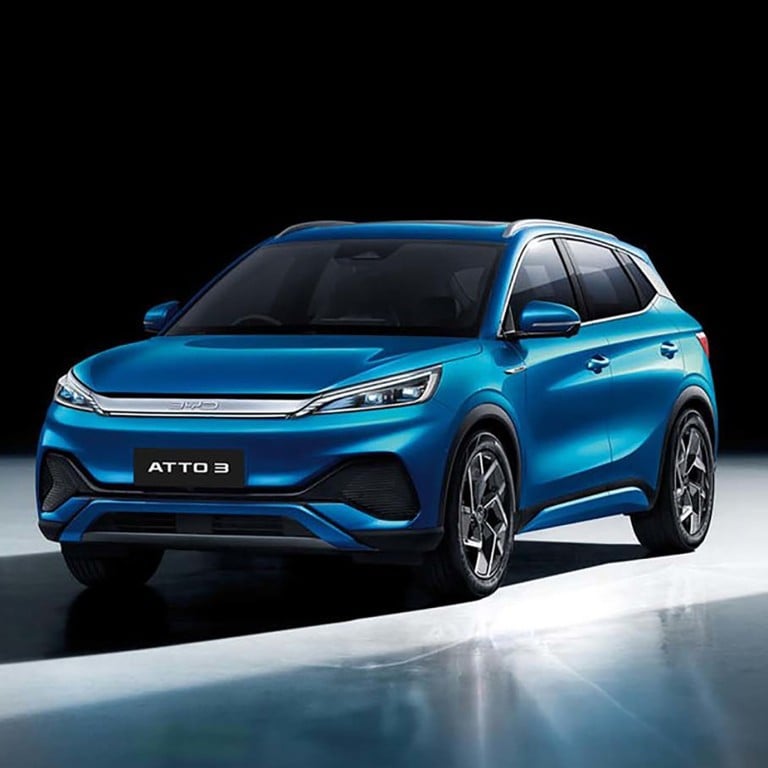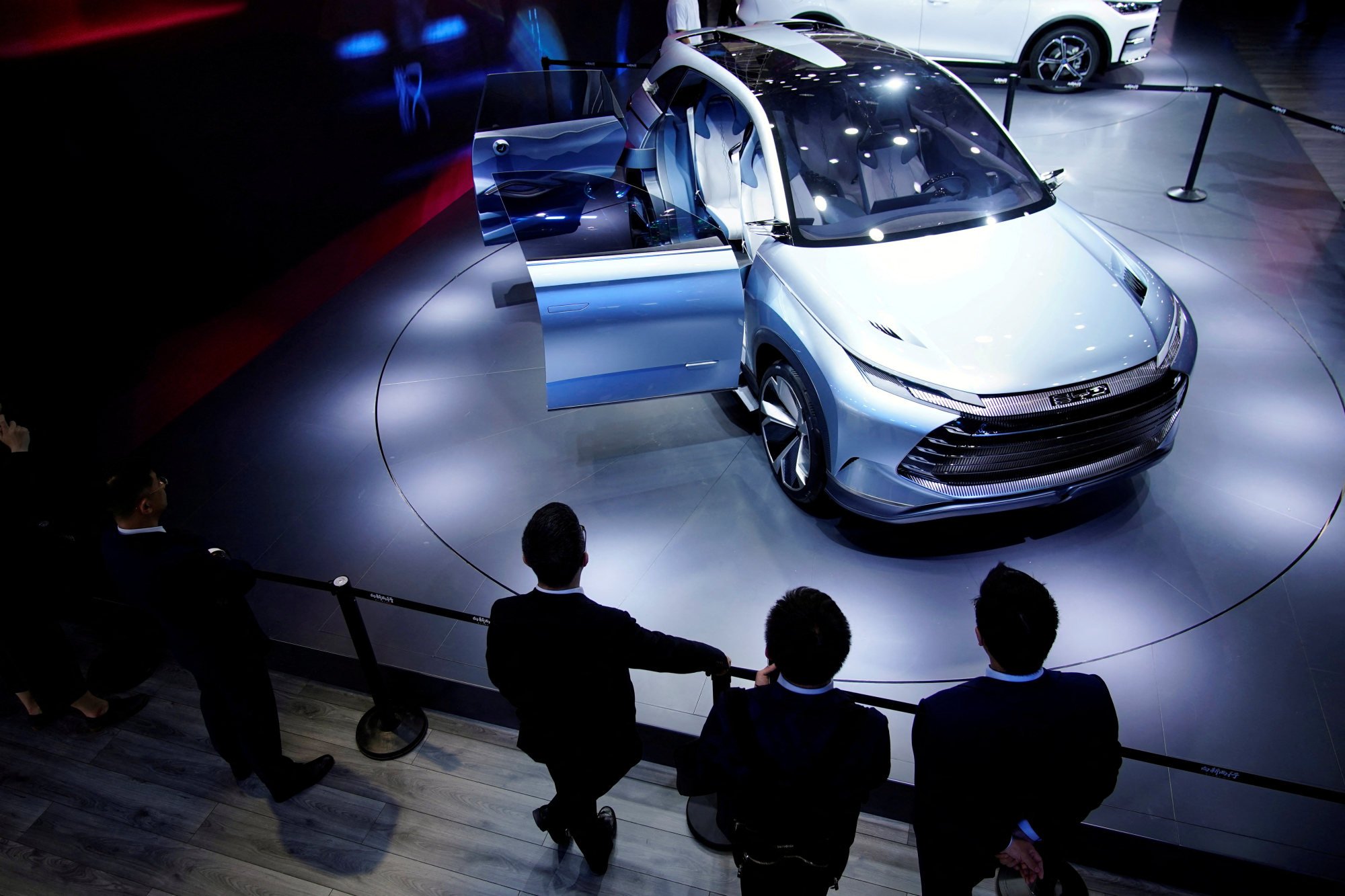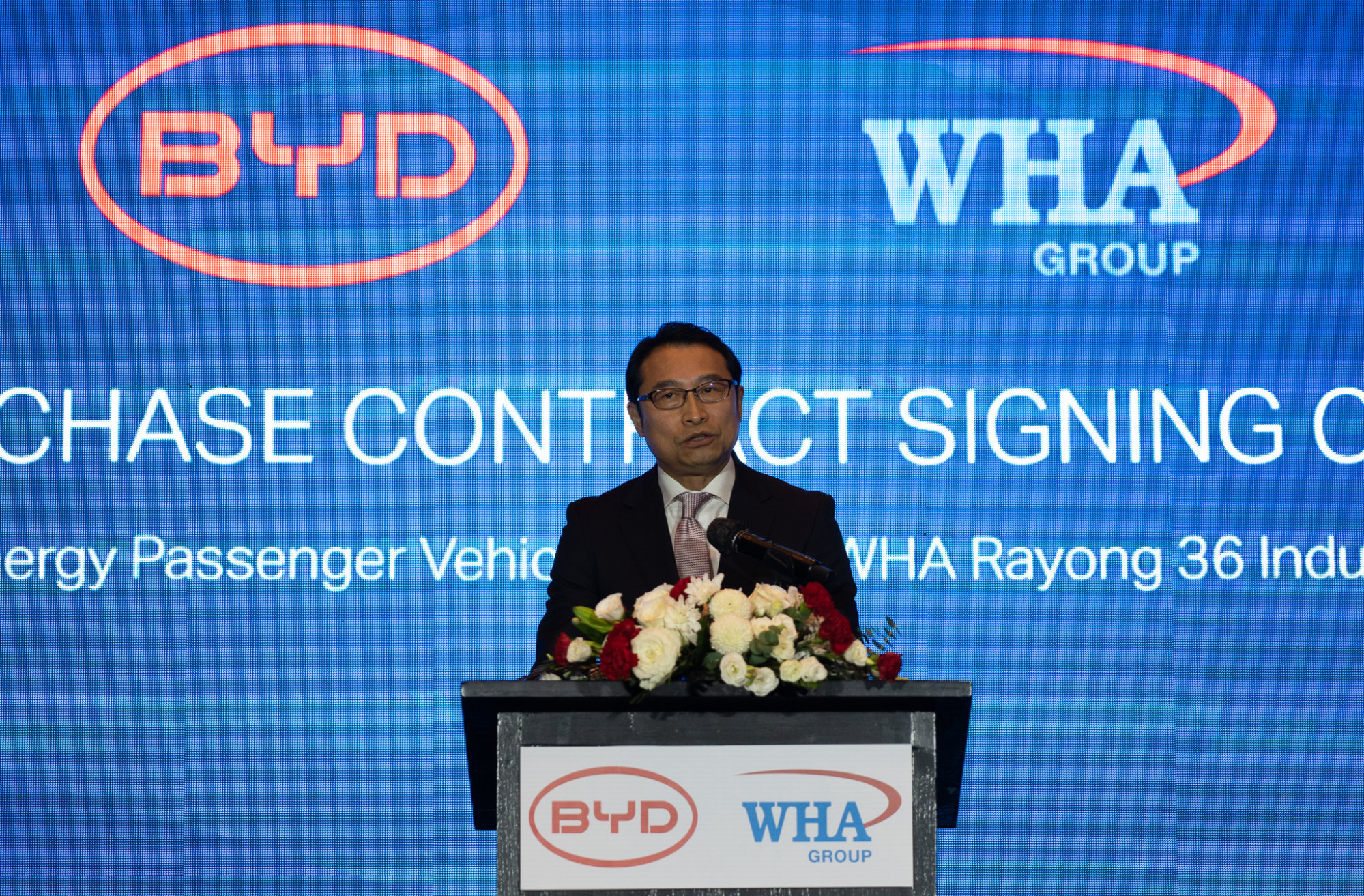
China’s BYD to launch new SUV in Thailand, in effort to spark the country’s electric car market
- One Thai automotive journalist believes BYD’s launch of the Atto 3 next month will transform the image of Chinese car brands in Thailand
- BYD recently overtook Tesla as the world’s largest EV brand, selling 641,000 vehicles in the first six months of 2022 compared to Tesla’s 564,000
More than 3,600 new EVs were registered in the first seven months of this year, taking the total registration to more than 7,600 vehicles, compared to 3,100 vehicles during the same time last year or a 142 per cent increase, said Federation of Thai Industries’ vice-chairman and spokesman for the group’s automotive club Surapong Paisitpatanapong

In July, GWM said more than 2,200 Ora Good Cats were on the delivery waiting list in Thailand, with GWM having already delivered about 2,500 vehicles since their launch in October 2021.
But the entrance of BYD, or Build Your Dreams, the world’s largest electric vehicle brand, is expected to alter MG and GWM’s positions as market leaders.
Competition between BYD and Tesla is already tense globally. The Chinese brand recently overtook the American firm as the world’s largest EV brand, selling 641,000 vehicles in the first six months of this year compared to Tesla’s 564,000.
“I don’t think BYD would be in the same pricing segment as the Tesla in Thailand,” said Nithi, adding that an imported Tesla at the moment costs about 2 million baht (US$54,000), placing it in the high-end automobile market.

Thai government promotes use of electric vehicles
“Thailand has established itself as the regional leader in auto exports so it only makes sense that EV manufacturers would look to base themselves there,” James Guild, an adjunct fellow at S Rajaratnam School of International Studies said.
Guild added that with big players like Thailand’s energy giant PTT getting into the EV game, there is real political and economic support for the industry’s development.
Will Tesla supercharge Indonesia’s bid for electric vehicle battery crown?
Horizon Plus will also support the EV production, battery supply chain and charging stations in Thailand in its efforts to expand the EV ecosystem here.
Economic think tank TTB Analytics expected 10,000 battery electric vehicles to be sold in Thailand this year, a 500 per cent growth year on year. Factors like popularity and affordability particularly of Chinese EVs and high energy prices will help people make easier decisions, it said.
Assistant Professor Puree Sirasoontorn from the faculty of economics at Thammasat University said with the pricing of Chinese EVs, the Thai middle class will spur Thailand’s low carbon ambition.
This leaves out vehicles in the services segment like buses or taxis which should be included as part of Thailand’s 30@30 EV production policy, she said. The plan aims that 30 per cent of all domestic vehicle production will be zero emission by 2030.
With the current economic situation, it is difficult to convince consumers to get a new vehicle, much less to decide to get an EV
“With the current economic situation, it is difficult to convince consumers to get a new vehicle, much less to decide to get an EV,” said Puree.
“However, I don’t see Chinese EVs being priced any lower in future, given higher market competition, because it could affect reputation and image among the Thai middle class,” said Puree.

